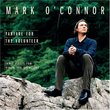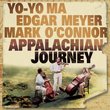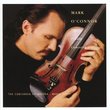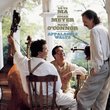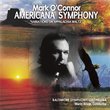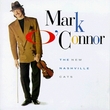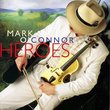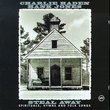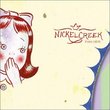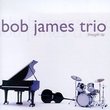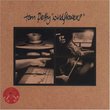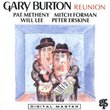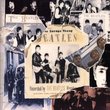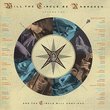| All Artists: Mark O'Connor, Scott Yoo, Metamorphosen Chamber Orchestra Title: The American Seasons Members Wishing: 0 Total Copies: 0 Label: Sony Original Release Date: 1/1/2001 Re-Release Date: 9/25/2001 Genre: Classical Styles: Chamber Music, Forms & Genres, Concertos, Historical Periods, Classical (c.1770-1830) Number of Discs: 1 SwapaCD Credits: 1 UPC: 696998966024 |
Search - Mark O'Connor, Scott Yoo, Metamorphosen Chamber Orchestra :: The American Seasons
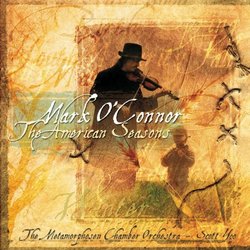 | Mark O'Connor, Scott Yoo, Metamorphosen Chamber Orchestra The American Seasons Genre: Classical
|
Larger Image |
CD DetailsSimilar CDs
Similarly Requested CDs
|
CD ReviewsThis man just goes from strength to strength. Bob Zeidler | Charlton, MA United States | 10/13/2001 (5 out of 5 stars) "In a relatively short period of time, I've managed to very nearly become a Mark O'Connor "compleatist," grabbing up virtually everything he's released on disc. This new release - "The American Seasons" - goes to the top of my O'Connor short list, along with "Heroes" (O'Connor fiddling duet-style with virtually all of the other greats of the instrument), "Fanfare for the Volunteer" (O'Connor's alternately thrilling, moving and heartfelt violin concerto of a few years back), "Midnight on the Water" (O'Connor as triple-threat Paganini, on violin, guitar and mandolin), and "Telluride Sessions" (in which O'Connor teamed up with Bela Fleck, Edgar Meyer, Sam Bush and Jerry Douglas to form the Strength in Numbers group on the most essential "Newgrass" release ever produced). This time around, it's "all strings, all the time," with the excellent Boston-based Metamorphosen Chamber Orchestra providing the orchestra backdrop. The title piece is a four-movement Concerto for Fiddle and Strings, representing the seasons of an American musical life (part O'Connor and part archetypal as he writes in the notes), with at least a sideways glance at Vivaldi's "Four Seasons" for the same instrumentation. But there's absolutely no risk of confusing O'Connor and Vivaldi in this work. Three of the four movements are each in two major sections, for a total of seven major themes meant to suggest the stages of life, along the lines of Shakespeare's "seven ages of man" from "As You Like It." So much for the background. What is the work like? It's of course typical O'Connor in the sense of extending the reaches of the instrument, but yet new and different from his earlier Fiddle Concerto and "Fanfare for the Volunteer." Where those two works have their glances back at earlier musical eras (the romantic violin concerto era in the case of the Fiddle Concerto and the early 20th century of Copland, Hanson and Harris in the case of "Fanfare for the Volunteer"), this work is thoroughly grounded in more current musical idioms. Like all of O'Connor's major compositions, it is a high-wire balancing act of touchingly sweet lyricism and absolutely mind-bending pyrotechnics. The extended 4th movement cadenza is - as are so many of his solos - something that I think only he will be able to perform in the foreseeable future; it is that challenging. Listen carefully to this cadenza, particularly its closing measures, in which he achieves some spiccato ("bouncing bow") effects using both fundamentals and harmonics. This is one of those "Do not attempt this at home" challenges which I can't imagine any concert violinist attempting anytime soon; it's downright scary in its difficulty. The second major work of the album - "Strings & Threads" - is O'Connor's "take" on the history of American vernacular fiddling in a 13-movement suite of brief reflections on styles, covering Scots-Irish fiddling from the pre-Revolutionary days through blues, ragtime, Texas-style "flat" fiddling, swing, into the present era. It should come as no surprise to anyone who has listened to his "Heroes" album that he has every one of these styles nailed. The concluding work is an arrangement for string orchestra of his deservedly famous "Appalachia Waltz" (of the Yo-Yo Ma/Edgar Meyer/Mark O'Connor album of the same name). It was this album which first brought O'Connor to my own attention. Here, he and Edgar Meyer have arranged this famous work for string orchestra, and the Metamorphosen perform it with the achingly lyrical beauty that it deserves. The recording - made in the warm and intimate acoustic of Mechanics Hall in Worcester, MA (which served as the architectural model for Symphony Hall in Boston) - is a model of clarity and presence. Sony has captured the sound of O'Connor and the Metamorphosen perfectly. Too bad about that 5-star limitation, though. I really wish I could have given Mark at least a few more. Bob Zeidler" Appalachian/Classical Crossover Dr. Christopher Coleman | HONG KONG | 10/12/2001 (4 out of 5 stars) "Mark O'Connor is featured as fiddler, violinist, and composer on this Sony CD of his own works, The American Seasons. O'Connor may be best known to audiences from his performances with YoYo Ma and Edgar Meyer on the Appalachian Journey and Heartland CDs. American Seasons offers more of the same--a hearty dose of folk music--fiddle tunes from the American South, Blues, Texas Swing and more translated through postmodern ears. It's as if Igor Stravinsky had used Appalachian folk tunes as the basis for his Pulcinella suite, and flavored it all with touches of Vivaldi, Philip Glass, Bartok and even Yanni. As such, the music is wildly vibrant, rhythmically energetic, filled with the idioms of folk music but using the structures of the classical world. It has occasional mild harmonic dissonances but is always melodic and often completely diatonic. At their best, O'Connor's compositions sparkle with life, at their worst the frequent repetition of notes, rhythms and melodic formulas is annoyingly tedious. Compare, for example, the first and last movements of The American Seasons and you will find they are hardly distinguishable. The same melodic figure is treated obsessively to seemingly unending repetition, over and over, repeatedly, time and again. The liner notes tell us "The more you hear The American Seasons, the more you realize that it's built on a mere handful of motifs, and that O'Connor is learning the parsimonious cunning of a master." True, but when Berlioz or Beethoven do this, the transformations of those motifs fascinate us instead of driving us to distraction. Development is not O'Connor's compositional strength.But although O'Connor isn't yet a great composer, he is certainly a great performer. His training is far from classical--he's a U.S. fiddle champion whose roots lie in the folk music traditions of Texas and the American South, with further training from jazz violinist Stephane Grappelli. But he's managed to incorporate the classical violin sound into his playing, smoothing out the roughness of the traditional fiddle sound. O'Connor doesn't attain the lushness of a violinist like Gidon Kremer, but then he doesn't strive for that, and his unique tone quality and virtuostic technique are enviable.More enjoyable than the titular concerto are the two other works on the CD, the Strings and Threads Suite and the Appalachia Waltz. Strings and Threads is a collection of thirteen short movements written in the styles of various fiddle traditions. It's a wonderfully tuneful piece without the pretentions and consequent miscues of The American Seasons, and totally delightful. Finally, the gentle and quietly elegant Appalachia Waltz is reminiscent of Aaron Copland at his best." O'Connor meets Vivaldi Rod Saunders | Tulsa, Ok | 10/21/2003 (5 out of 5 stars) "The concept is Vivaldi's perhaps, but the composition and playing are uniquely O'Connor. Just as he took the concept of the caprices from Paganini in Midnight on the Water, Mark O'Connor demonstrates here his ability to borrow from others to create something distinctly his own. I drove all the way from Tulsa to Dallas to watch a live performance of The American Seasons and I don't regret it for a minute. It was November of 2001, just two months after the tragedy of 9-11. Appropriately the American part of The American Seasons took on a whole new meaning to both the performers and their audiences. This four-part concerto represents the four stages of life, and incorporates various musical genres that are uniquely American. The theme and variations in the first movement are almost as catchy as Beethoven's 5th, with an intertwining counter melody weaving in and out. The second movement, representing youth and early adulthood, starts off with a slow, bluesy theme. O'Connor said he envisioned a kid kicking a can down the street as this movement unfolds. I can see that. The third movement, Fall, represents adulthood and middle age. It's probably the weakest of the four movements, but then the excitement and energy of youth is fading away and the complexities of life that are encountered in this stage are reflected in the slow, wandering melody. The fourth movement revisits the theme of the first movement with added drama and dissonance. The idea, I gather, is that in old age we tend to reflect on our earlier years with more wisdom and hopefully a more discerning perspective. The first suite is worth the price of the CD, but the Strings & Threads Suite is the icing on the cake. Here O'Connor runs through a series of short pieces offering an assortment of irish jigs and reels, waltzes, rags, and blues as the focus moves away from composition and features more pure fiddling. Before I bought this CD I bought The Fiddle Concerto. While I felt that was a good effort, I feel that O'Connor found his stride with The American Seasons. It's destined to be considered one of the great concertos of the 21st century."
|

 Track Listings (6) - Disc #1
Track Listings (6) - Disc #1